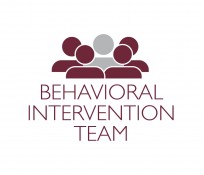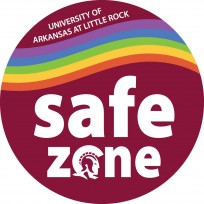Mission
In the interest of creating usable, inclusive and sustainable environments, the Mission of the UA Little Rock Disability Resource Center encompasses two primary functions:
- To consult and collaborate with faculty, students, other campus stakeholders, and outside entities regarding Universal Design and reframing disability.
- To facilitate access via accommodations, including those related to communication, the physical environment, print materials, and technology.
Summary Narrative
1) Enhance recruitment and retention efforts to increase enrollment
The DRC continued the peer-to-peer mentor workshop series for students with learning disabilities. Based on the positive feedback from the group the program will expand to include more students.
In addition to the Stacy Willis Memorial Scholarship, another endowed scholarship has been funded that will benefit two students registered with the Disability Resource Center annually. This donation was provided by David and Johanna Threm. David worked in the Disability Resource Center twenty years ago. The Threm’s gift along with the Stacy Willis Memorial Scholarship further helps selected students meet their educational goals.
The DRC presented information on registering for services to receive accommodations to students enrolled in the Clinton School of Public Service, Social Work Programs, Nursing school orientation, Speech Communication, and the Bowen School of Law.
2) Strengthen student-friendly operations and customer service
Disability Resource Center is implementing a new Information Management System to help streamline the services offered to students. Accessible Information Management (AIM) is a database that is used by many disability resource offices on college campuses across the country.
With AIM, the DRC can simplify the processes for students, staff and professors by improving integration with existing systems. For students, this update will make it easier to request accommodations, assistive technologies and other services.
3) Improve diversity and inclusion efforts to provide a safe and inclusive environment for students
None
4) Align financial and human resources to operate more effectively and efficiently
The DRC started the implementation of a new student database that will integrate with systems currently at UA Little Rock and will be more efficient in disseminating Faculty Notification Letters, acquiring specific information that could help the office be more proactive and better organized with registered students.
5) Promote student development, engagement, and leadership
The DRC piloted a peer-to-peer mentoring workshop series for students with learning disabilities related to reading in 2018. Two groups were formed and met once a week for 6 weeks. The students who participated shared their learning experiences and were able to gain better self-awareness, and learn about other technologies, study tips, and self-advocacy skills.
Another peer-to-peer mentoring group was established in the Spring of 2019 and there are plans to continue the workshops in the fall 2019 and expand the scope to include more students.
6) Other
Presentations in the Community
The DRC presented to students, parents and teachers at LISA Academy, North Pulaski High School, Arkansas Interagency Transitioning Partnership (AITP) Summer Connections in Little Rock and Arkansas Transition Services (ATS) Summit in Rogers, AR. Members of AITP and ATS are made up of Special Education teachers, area evaluators, and various disability service providers from across Arkansas.
Community Collaboration
On Campus
The DRC is represented in the Staff Senate, University Garden Alliance, Title IX, University Behavioral Intervention Team.
Off Campus
The DRC is represented in the Arkansas Chapter of the Association of Higher Education and Disabilities. DRC is represented in the state affiliate Arkansas chapter of the Association of Higher Education and Disability (Ark-AHEAD), Arkansas Registry of Interpreters for the Deaf ARID, and the Arkansas Interagency Transition Partnership.
At A Glance
text
Assessment 1
Type of assessment (learning outcome or operational)
Student learning outcome
Activity or experience being assessed
Students use of requested books in alternative formats, both in being downloaded and in being fully utilized
Assessment artifacts
Survey
Time period assessment was done
May 2019
Results
59 surveys sent with 31% return.
83% of respondents successfully downloaded books.
Of those:
- 53% called the DRC for assistance
- 60% watched the instructional videos.
- 17% of the total respondents did not download book.
- Of those ⅔ called into the DRC for assistance.
The data suggests that the provided videos and students calling into the office was beneficial.
Follow up calls were made to 66% of the respondents. In each instance, students reported successfully downloading book.
We anticipated that the survey would show a more problems in the delivery of and downloading books in alternative formats to students who requested them. However, the data suggests the processes put in place by the DRC, (video instructions for downloading books, follow up calls by DRC staff and interns) were overall effective, but does show that there are improvements to be made.
Although not expressly stated it would appear that proactive follow up with each student would be beneficial.
Continuous improvement process
Add follow up calls to students to ensure they have received and downloaded the requested books.
WHEN: Fall 2019
Stakeholder involvement / Communication plan
DRC staff, DRC students
Assessment 2
Type of assessment (learning outcome or operational)
Student Learning Outcome 2B
Activity or experience being assessed
Read or Not to Read Peer-to-Peer Mentoring group
Assessment artifacts
Focus Group (discussion lead by Reed Claiborne)
Time period assessment was done
December 2018 and April 2019
Results
Group of students unanimously agreed that a group like this is an important aspect of navigating their barriers.
Earlier announcements and better advertising should be put in place so students can have a better opportunity to employ shared skills into the current semester.
Comments from students:
- Finally, with this group, I did not feel alone.
- With this group I felt normal
- The DRC helped, but what helped me the most was meeting with others who understood what I was experiencing.
- Meetings were enlightening and offered me information from my peers that I would not know without all of the sharing.
Continuous improvement process
Group will continue and will broaden the scope to include more students who experience barriers
Implement on trial basis at Bowen School of Law
WHEN: July 2019
Stakeholder involvement / Communication plan
DRC Staff and students, Counseling Services, advisors, department heads, Facfocus
Assessment 3
Type of assessment (learning outcome or operational)
Operational
Activity or experience being assessed
Use of Audio Note Taking program (Sononcent
Assessment artifacts
Survey
Time period assessment was done
August 2018-Dec 2018
Results
20 students participated in a pilot program. Of the 20 students, 15 said Sonocent was beneficial to their note taking process. Three were not able to get it to work properly, 2 students withdrew from on campus classes. Sonocent is not beneficial with online courses.
Continuous improvement process
Sonocent has been added as an assistive technology tool available to students.
WHEN:
Stakeholder involvement / Communication plan
DRC students, TRIO, CEHP Student Success Services, athletics
Email about this product and its benefit, offer to do demonstrations
Priorities for Next Year
- Implementation of the new Student Database
- Promoting Accessible and Universal Design
- Replacing 2 interpreters

